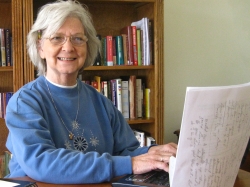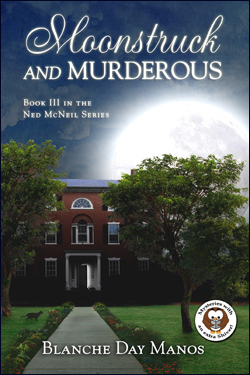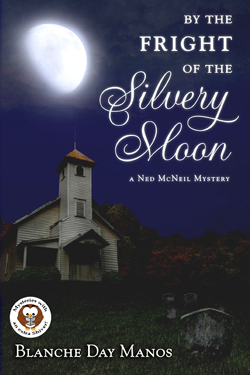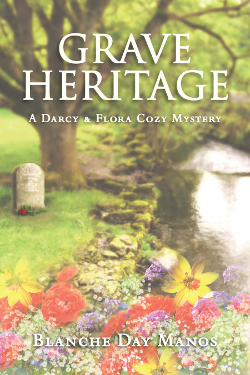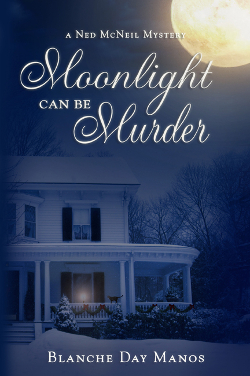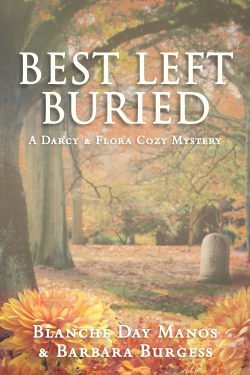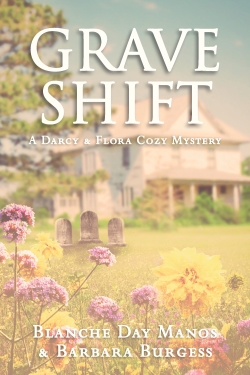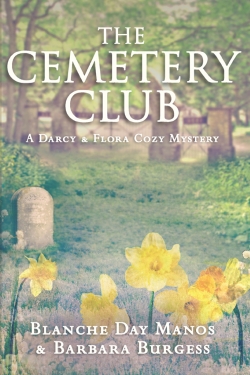Chapter 1
The letter came on a warm morning in November. Several weeks later I asked my mother if she had a premonition, a tingling in her fingers before she read it. She said no, not even a chill down her spine. However, sometimes it’s the everyday events that hold the potential for disaster. Who would have thought that the contents of an innocent-looking envelope could turn our lives upside down?
The blank screen of my computer stared accusingly at me. Several national newspapers had picked up my story on The Changing Face of Rural America and I was trying to work on two more features, but it was hard to stay indoors on such a beautiful day as this.
Downstairs in the kitchen, my mother made plans for the new school she was building on the Ben Ventris farm south of town. Ben’s Boys, she was going to call it; a school for boys who needed a home and firm, loving guidance.
No one was more shocked than my mother when Ben Ventris, an old friend of the family, was murdered last spring and bequeathed his farm and all his earthly holdings to her, Flora Tucker.
When she recovered from that unexpected windfall, she started making plans. “This farm would be a wonderful place for boys,” she said. “There’s that orchard behind the house. There’s the river for swimming and fishing, and plenty of trees so the little fellas could learn to chop wood for the fireplace.”
Those “little fellows” would actually be juvenile delinquents or boys in danger of going astray from the law. I doubted that they would equate wood chopping with fishing and swimming, but I knew what she meant.
Ben’s estate included not only the farm but also his and his daughter’s extensive land holdings and another treasure that neither she nor I mentioned. Its location was far too sad to think about. Not many people knew about that hidden vault and that was fine with both of us.
Snatches of the old hymn, Build Me a Cabin in the Corner of Glory Land, floated up the stairs as Mom planned how many bunk beds and how large a dining table those boys would need.
Knowing very well what she was doing, I called down the stairs, “Say, Mom, are you drawing up plans for your new house?”
“Darcy Campbell, this house suits me fine. Why would I need a new one? I’ve got lots of memories of your father within these rooms.”
This was an on-going, good-natured battle between us. The truth was, this hundred-year-old farmhouse needed constant repairs. She could afford a new house now and deserved one; preferably one with no stairs to climb or possibly tumble down.
Cliff Anderson, our mailman, came chugging down our road in his old blue truck. We seldom got more than utility bills, bank statements, and sales ads from Williams IGA but Mom looked forward to her daily trip to the mailbox. Most of the friends and relatives who might have written lived here in Ventris County. My mother had been Granny Grace’s only child and Dad’s parents died a long time ago but I had several cousins and, as Granny used to say, shirttail kin. As far as communicating by email went, Mom refused. The phone and personal chats were her means of communication.
My bedroom window provided an excellent view of the front yard. Mom pulled four items out of the mailbox. Three, obviously too big to be letters from distant relatives in Georgia were probably fliers advertising a seasonal clearance at a store in nearby Tahlequah. As she turned from the mailbox, Mom halted in mid-stride and studied the fourth envelope, a square one. She shook her head then hurried on toward the porch.
Her voice held a note of excitement as she came up the stairs calling, “Darcy, I got a letter from somebody I don’t even know in Amarillo.”
She tore open the envelope and pulled out two handwritten pages, unfolded them and began reading.
“Who in the world?” she muttered.
“What?” I asked.
She finished the first page and handed it to me. The message was written on plain, lined notebook paper in blunt, no-nonsense cursive:
Dear Flora Tucker: I read about you and your daughter solving the mystery of the murders in Levi after the police were unable to make any progress. I also have a mystery — one that breaks my heart — and I hope you will consider helping me to find a way out of the pain that has engulfed me for more than two years. My name is Sophie Williams. Although you don’t know me, I’m sure you will recognize my daughter’s name. It was Andrea Worth.
That jerked my eyes from the letter. “Holy cow!! She’s the one who. . . .”
Mom nodded, her gaze glued to the second page.
Sophie Williams was right; my mother would recognize the name of Andrea Mott Worth, as would nearly everyone in our little town of Levi, Oklahoma; as well as many people across the country. Although I lived in Dallas at the time, instant recall came to me. Local newspapers had covered the strange series of mysterious events surrounding this young woman.
Less than three years ago, Gary Worth, a wealthy rancher who owned several hundred acres of good pastureland in Ventris County, quietly married Andrea Mott, a 32-year-old divorcee from Amarillo. After only a few months, Andrea Mott Worth disappeared and no one knew where.
“Wait, Mom. I kept that clipping.” I jumped up and rummaged through my desk. The Dallas Morning News, where I used to work, ran a series of articles on the disappearance. I had cut them out because they concerned my hometown.
My mother silently continued reading Sophie’s letter while I re-read the clippings.
According to her husband, Andrea was still in bed when he left at 7 a.m. that September morning. When he came home shortly after noon, she was gone. All of her clothes and personal possessions were in the couple’s bedroom. Her handbag sat in its usual place on the dresser, he said. Her red Mustang still crouched in their three-car garage. A housekeeper had been at the Worth home earlier but she reported that she had not seen Andrea at all.
In fact, nobody had seen Andrea Worth since about 6 p.m. the previous day when a landscaper came to deliver an estimate for some tree trimming. He reported that Andrea was the only person at home when he arrived. He gave her the estimate and she promised to call him later. That call never came.
How could she have just disappeared with no trace?
The account of that disappearance brought to mind the disturbing questions asked but never answered. Gary told the police that he was not alarmed when he came home and discovered his wife gone since sometimes a friend picked her up for lunch. By 5 o’clock, he began to worry. He called Andrea’s friends and when he got no answers from them, he notified the Ventris County sheriff. No evidence ever turned up, although the couple’s vehicles, home, surrounding area, and Gary’s place of business underwent repeated testing.
Sunlight gilded the leaves of the oak by the front gate and a chill wind fanned my bedroom curtain. Andrea Mott Worth, young and undoubtedly full of hopes and dreams for the future, had disappeared even more completely than those leaves blowing off the tree and going who knew where.
One of my editors at The Dallas Morning News remarked at the time, “I bet that little ole gal just found herself another man and walked off.”
Could be. There was certainly no body and no evidence that a murder or kidnapping had taken place.
Mom held out Sophie’s second page to me. Although I am not a wealthy woman, Sophie wrote, I do have a little money in savings and would be happy to pay you and your daughter for whatever help you can give me. Please consider looking into my beloved daughter’s disappearance. I felt like the newspaper story about your solving the Ventris case was the answer to my prayers and the last hope I’ve got.
Sophie’s home phone and cell phone numbers followed.
“Well, Mom, what do you think of that?”
She headed toward the stairs. “What I think is I’m going to make a fresh pot of coffee.”
A cup of coffee and a talk with my mother solved many a problem during my high school and college years. Strangely enough, today we sipped the dark brew, busy with our own thoughts. Mom’s rose bush swaying in the breeze just outside the kitchen window caught my attention.
“It’ll soon be nipped by frost,” I said.
“What? What’ll soon be nipped?”
“Your rose. I was just thinking, Mom, that another season is here and this will be the second autumn that Sophie has faced without knowing the whereabouts of her daughter. How awful that must be for her.”
“I agree,” Mom said slowly, “and if there’s anything we can do to help that poor woman, we ought to do it. With your newspaper connections and the way you can get all kinds of stuff on that computer, and considering that we know just about everybody around here, we might be able . . . you do have a little spare time, don’t you?”
Her eyes grew misty and she reached across the table for my hand. “I know just how I’d feel if I was in Sophie’s shoes. She must be heartbroken.”
I squeezed her hand, realizing again that coming home after Jake died had been the right thing to do. I needed to heal from the loss of my husband and Mom needed companionship. She seemed to be lonelier now than she had been when Dad died twenty years ago. We two women needed each other. And now another woman needed both of us.
“Well, sure, if that’s what you want us to do, we could give it a try and see what we can stir up.”
A roguish smile quirked my mother’s lips. “I kind of like the sound of it. We could even hang a sign out by the mailbox.”
“A sign? I don’t understand.”
“Sure you do. We could hang a sign out there so everybody could see it from the road. A sign that says TUCKER AND CAMPBELL, Private Investigators.
Chapter 2
Something warm rubbed my chin; something with a motor. I groaned, rolled over in bed, and opened one eye to see our adopted cat Jethro’s close-up unblinking stare. “It’s so nice to have a furry alarm clock,” I told him. “But you need to be reset to a later hour, Cat. Off the pillow, now. Scoot,”
The aroma of fresh coffee wafted up the stairs. Mom always arose before dawn and sat down with coffee and her Bible to start the day. Maybe a cup of caffeine would jumpstart my brain. Sophie Williams’ letter plagued my dreams last night. What I knew about Andrea’s disappearance kept running through my mind, like a broken record. How was I supposed to come up with information that law enforcement hadn’t found? Googling her name on the computer might possibly yield some results, although surely that had been done.
When I came back to Levi after Jake’s death, it was with dreams of gardening, writing, and long fishing trips on the Ventris River.
“After our narrow escape this spring, if I get involved in another police matter, I should have my head examined,” I told Jethro. He squeezed his eyes together as he contemplated an answer. It took a long time to recover from being in the middle of those violent occurrences. My mother and I had been squarely in the sights of evil that walked around disguised as men. I still couldn’t think about my car plunging down Deertrack Hill, the flight through a dark and dangerous tunnel, and coming face to face with a loaded pistol without breaking out in a cold sweat.
Leaving the hustle and bustle of Dallas for the beautiful, hilly scenery of northeastern Oklahoma should have led to a life of peace and quiet, but the sleepy countryside of Ventris County was deceptive and covered dark secrets that were anything but peaceful.
A new idea sprang from lunch at Dilly’s Cafe last week with my friend Amy Miller. Right in the middle of dessert Amy asked, “Why don’t you write a book about Ventris County, Darcy?”
I almost choked on a bite of strawberry shortcake. “A book? What sort of book and why?”
Amy stopped folding her paper napkin into triangles. “Why not? With your newspaper experience and all the strange happenings around here, you could spin quite a tale. The story of the hidden Cherokee gold is a book in itself. And there are animal legends — I’ve heard that there may still be panthers in the thickest part of the woods. A few years ago, three of my cousins said a panther dropped out of a tree onto one of the horses they were riding. And, of course everybody has heard about those spooky ghost lights along the river.”
“I’ve personally never come face to face with a panther. And ghost light? The only lights I’ve seen along the river are from boaters.”
She shrugged. “But there have been reports. You might interview people who saw them. You told me Jake left you insurance money. You wouldn’t have to worry about income for a while and writing would take your mind off the things you can’t help.”
By “the things you can’t help,” she meant my grief at losing Jake. An intriguing idea, to write a book — but about what? A history of the area? A mystery? A romance? Why did Grant Hendley’s handsome face come to mind when I thought of romance? I suspected our sheriff could re-ignite those fires of passion we had shared many years ago if I allowed it. The thing was, I didn’t want to become romantically involved with anyone. Well, maybe “entangled” would be a better word. Perhaps someday I would feel whole again but I didn’t want that empty space in my heart filled just yet.
However, it was definitely a mystery to me that trouble seemed to follow me like a swarm of gnats on a hot summer day. Of course, there were human stories besides those of Ben Ventris. If I wrote a book, should I include a chapter on Andrea Worth? Right now she was an unsolved mystery.
Nothing about Andrea’s case made sense. In today’s electronic society, people don’t just disappear without a trace. But that’s what seemed to have happened to her. A few months ago, a small video company in Oklahoma City made a documentary entitled Into Thin Air that was picked up by all the major networks. It was about several unsolved missing persons cases, including Andrea’s.
Was she murdered? If she was, it was surely efficient because murder always leaves a clue. The state police went over the Worth home, the surrounding grounds, and the couple’s vehicles with some of the most sophisticated equipment available anywhere, and not a shred of evidence pointing to violence could be found. None of the neighbors saw or heard anything out of the ordinary. The security guard at the Worth ranch noted only the housekeeper entered the grounds that morning, and the surveillance camera backed up his report. No ransom note appeared. If Andrea was murdered, who murdered her and why? And if it was a murder, what happened to the body? My twenty years as a news reporter had taught me that it was nearly impossible to completely get rid of a human body. But then again, many murders went unsolved for years, possibly even forever.
Besides an extensive ranch, Gary owned a contracting company. Several signs around town proclaimed that the Worth Company had built this or that building. Investigators with dogs covered every single recent construction spot and turned up nothing. Any reporter who has spent a little time in a criminal case courtroom knows the prosecution has to prove that a defendant had means, motive, and opportunity to commit the crime — something that can occasionally be accomplished even if there is no body. But there was nothing to point even a small sliver of suspicion in any direction. There was no body, no evidence, and as far as anybody could tell, no motive of any kind.
In the face of all this non-evidence, what good would it do to go back two years and dig for more information? Did I think I could do a more thorough job than professional crime fighters?
Barefoot, I padded to my closet and pulled out a pair of white walking shorts. After getting dressed, I would crank up the computer. Maybe I could use some of the search engines to discover a clue; some trail, however dim, that I could follow.
My lead investigator had other ideas. Mom stuck her head in the door just as I was tying my white sneakers. She wore a denim skirt and blue shirt. This was her “I mean business” uniform. She had fluffed her black and gray hair around her face, making it look deceptively like a halo. Her sharp brown eyes took in Jethro lying on my unmade bed.
“Get a move on, Darcy. We need to go over to Dilly’s for breakfast.”
“Sure, if you want to go out for breakfast, that’s okay with me. But, I thought it might be a good idea to start on the Worth case.”
“We are going to do just that,” she pronounced, “and the most logical starting point is the place where everybody in the county comes to drink fresh-ground coffee and eat waffles that Artie’s been up making since before daylight. Probably folks around here know a lot more about Andrea Worth than you could ever find out on your computer. And I intend to encourage a little gossip.”
“But Mom,” I argued, “I’m not comfortable going over there and pumping those unsuspecting people about something that happened a while back.”
Wriggling into a Sooners sweatshirt, I presented my case. “I mean, what reason are we going to give for asking such questions? I’m technically on a leave of absence from the newspaper and I don’t want anybody to think something else has turned up about Andrea and I’m covering a new story on her.”
She tilted her head. “I thought about that. You said that Amy suggested you write a book about Ventris County. You could say that we are interviewing people about that book. And, then sort of sneak in some questions about Andrea, too. You can’t tell, Darcy. Somebody might have remembered something that they didn’t think was important two years ago. And then again, maybe someone wants to clear their conscience of something they have kept secret. I’m certainly ready to listen to any confessions.” She nodded and winked. “I know how to be discreet.”
My mom, the psychoanalyst. I ran some coral lipstick across my mouth and brushed my hair into a ponytail. When I turned sixty-seven, I hoped I would look as good as my mother. I inherited her black hair and dark eyes. If only I could acquire her energy and enthusiasm. Glancing in the mirror told me that I looked as good as short notice would allow. Nobody dared fool around with last minute details when Flora Tucker shifted into high gear.
We pulled into Dilly’s establishment fifteen minutes later.
“We’re lucky to find place to park,” I muttered. “Where did all these people come from?”
I’m not sure whether Dilly’s crowd was due to the Ventris County social hour or the big yellow $3.49 Breakfast Special sign in the window. At any rate, I could not see even one empty booth or table as we entered Dilly’s. Artie himself waved us toward the end of the counter nearest the kitchen.
“Come on in, Miss Flora and Darcy,” he said, grinning. “There’s a booth here at the back that is kind of hidden. I’ll bet there’s room for two skinny little ladies like you.”
A sense of hominess settled on me as it always did when I went to Dilly’s. This cafe had its beginning way back in Levi history. It opened originally in 1946, started by a returning WWII soldier who loved to cook and loved to eat and decided he wanted to go into business for himself. Because he used fresh vegetables and meat purchased from local farmers, and taste-tested every dish that came out of his kitchen, Dilly’s was an instant success. The original yellow Formica and chrome tables and black-and-white checked tile floor had been replaced, but each renovation was done with specially ordered factory merchandise made to replicate the eatery of the forties. Everything was exactly the same — except breakfast was no longer forty-nine cents.
The people who clustered in booths and at the counter didn’t allow the joys of eating to hinder the serious business of talking. The restaurant’s customers wouldn’t have noticed if one of Oklahoma’s infamous twisters churned overhead during breakfast. The hum of voices reminded me of a beehive. Before we got halfway across the room, a number of people yelled at Mom, although many in the café were strangers to me. I recognized Pat Harris, treasurer of Goshen Cemetery and Mom’s close friend; Chuck Taylor, an old friend of my father’s; and Marylee Stratton, owner of the local Cut & Curl.
“Thanks, Tony,” I said to Dilly’s waiter as he led us to the booth at the end of the room.
“What’ll it be this morning, Darcy?” Tony asked, pencil poised above his order pad.
“Blueberry waffles for both of us, please. Nobody can make them better.”
As Tony hurried back to the kitchen, I concentrated on the people around me, all of them intent on munching and talking. They seemed pretty contented to me; nobody looked as if he wanted to clear a guilty conscience.
Crispy brown and steaming, the waffles arrived on a thick blue plate. One mouthwatering bite later, I realized Mom had other things on her mind besides breakfast. Her waffles cooled while she worked the crowd like a politician with Election Day right around the corner.
Stopping at her chair long enough to pick up her coffee cup she leaned toward me and whispered, “Have them box up my waffles, Darcy. We’ll take them with us. I’m hearing too much now to take time out to eat. I’ve got to talk to Loretta Walker.”
She headed for a corner booth where a couple I did not recognize was about to leave.
Halfway through my breakfast, Pat Harris slid into the seat across from me. “How exciting, Darcy! Your mother tells me you’re going to write a book about Andrea Worth,” she said.
So much for Mom’s discretion. It probably would do no good to tell Pat that she was mistaken, but I tried.
“Not really, Pat. I’m thinking of a book about Ventris County in general. Of course, I’d probably mention Andrea since her case has never been resolved.”
From the way her nose twitched, I didn’t think she believed me.
Before the lunch crowd arrived, doubtless everybody in Levi would know Darcy Campbell had once again stuck her oar in and muddied the waters of a story that had been nearly forgotten.
As we drove home, Mom and I shared what we learned at Dilly’s.
“I guess that most people think Gary Worth’s wife did him wrong. Several people mentioned how neighborly he is,” Mom said.
“Looks like it. Hiram Schuster couldn’t praise Gary enough for the carpentry work he did out at your school. Chuck Taylor told me that Gary actually gave him a calf after one of Chuck’s herd was hit by a car on the highway, and the list goes on.”
“And Earlene Crowder — you know, she was housekeeper for the Worths for a while — said she had never heard Gary and Andrea exchange a harsh word. She said that Gary is a kind man.”
One diner suggested I talk to Jasper Harris, Pat’s backward adult son. What could Jasper tell me? Surely he would not be involved in anything nefarious. Although he was a loner and sometimes wound up making situations worse when he intended to make them better, Jasper couldn’t be a danger to anybody.
Mom was about to get out of the car as we stopped in her driveway when she snapped her fingers and settled back into the seat. “I forgot to mention that Earlene said Zack didn’t come home last night. She was trying not to worry but not doing a very good job of it.”
Earlene and J. Lee Crowder were distant cousins of mine. Mom and Earlene were not close friends but they both were interested in the upkeep of Goshen Cemetery and comparing stories about James Tucker, our long-ago common ancestor. Zack was much younger than I and had been born in Earlene and J. Lee’s later years, so he and I had little in common. His parents could be accused of hovering where their only child was concerned.
“How old is Zack now, twenty-five?” I asked. “He probably gets tired of reporting in.”
“I guess you’re right. He drives a truck and I understand he does cross-country hauls at times. Aren’t you getting out, Darcy?”
“No, I’m going to talk to Grant. He wasn’t the sheriff when Andrea disappeared, but maybe he has found something new about her during these two years.”
To read more, purchase at Amazon.
